Eric E. Wright's Blog, page 39
November 11, 2013
The Power of Words
Keats, one of England’s great poets, died before receiving acclaim. During his lifetime, one of his critics called his poetry, “fricassee of dead dogs”. Ouch! Words can really hurt—or heal.
The children’s taunt is not true. “Sticks and stones may break my bones, but words will never hurt me.”
Tim Hansel tells of going to a Christmas presentation of a Bach oratorio. The white-haired organist not only played the music but directed the choir. Tim Hansel was enthralled. At the end of the concert he ran up to the front, and said to the organist. “That was wonderful. It has made my Christmas season special.” To his shock, the organist burst into tears. Hansel quickly turned away, sure that he had offended him.
Before he could go, the organist grabbed his arm. “Not you son, You just caught me by surprise. I’ve been here 18 years. You are the first person who has done that.”
Tim Hansel left that concert determined to never fail to encourage people. Encouraging words have enormous power to uplift and cheer us on our way.
Mary Helen has had a lot of medical tests recently, especially after a midnight race to the hospital with what was diagnosed as atrial fibrillation. One of the specialists, in explaining her options, commented, “This could happen again at any time. In a month, or six months, or years later.”
I’m sure he was just trying to be accurate and give Mary Helen a sober assessment. But his words were not very comforting, especially when he neglected to explain that this might not happen again with the treatment he was prescribing. Perhaps he was taught to err on the side of caution, since he might get sued. But we had expected thoughtful soothing words. Is she to live now on pins and needles worried that her blood pressure might rise precipitously?
According to Hebrews, we need to be intentional about spreading encouragement. “Let us consider how we may spur one another on toward love and good deeds…let us encourage one another—and all the more as you see the Day approaching” (Heb. 10:24,25).
Many people are sad, discouraged, or depressed. They need a lift. So wherever we are, whomever we meet, let’s try to spread words of encouragement and appreciation. The gas station. The grocery store. To our neighbours. By a word, a smile, a phone call, a card, or even an email.


October 28, 2013
Shopping Cart Scrum
A week or so ago, Mary Helen sent me off to do grocery shopping while she took care of other business. Now, I enjoy shopping for groceries. It’s probably something to do with being born in the depression when bananas were a luxury. Chocolate unheard of. Or it may be due to spending 16 years in Pakistan where we had no supermarket.
Anyway, with anticipation I corralled a shopping cart and plunged into the experience. The huge store was in a town where we don’t usually shop, so I wasn’t prepared to do battle. I’d hardly begun to ponder which variety of grapes to buy before I realized I was taking this shopping thing way too lightly.
All around me grim-faced rivals determined to cut seconds off their previous records zoomed around the store using their carts as menacing missiles. Someone reached over my shoulder for grapes. I was blocking them in. Like the polite Canadian that I am, I mumbled sorry and moved my cart into the scrum.
Congestion was serious. Woe-betide anyone who blocked an aisle. No one smiled. Harried housewives and grim seniors jockeyed for position around the bargains. My attempt at a light comment, must be rush hour, was ignored. Brows were puckered, lips set in grim lines, eyes focused ahead. It was almost like being in an elevator with no one acknowledging anyone else. Before I could say, we will not be unsold, I found myself metamorphosing into a grocery store Jekyl.
Charge! Time is short! I’m so important and my life is busy! I’ve got to get to the check-out before these plebeians.
Wait a minute. This is crazy. Surely, not everyone has a deadline to attend the funeral of their best friend. We live in an age with more disposable time than any other. We own scores of labour-saving devices. Few of us have to work from dawn until dark in farm fields or on a job site. Or haul water from a well. Or use an outhouse. Or cut wood to cook our meals. Or hunt for food.
Then can’t we relax a little? Take it easy. Smile at one another. Make cheerful comments. Life is too short to look on grocery shopping as if it was grim race to the finish.
“A happy heart makes the face cheerful”(Prov.15:13a). “The cheerful heart has a continual feast”(Prov.15:15b). “An anxious heart weighs a man down, but a kind word cheers him up”(Prov. 12:25).


October 19, 2013
Developing a Grateful Lifestyle
Becoming a thankful person is always in season. With the US thanksgiving ahead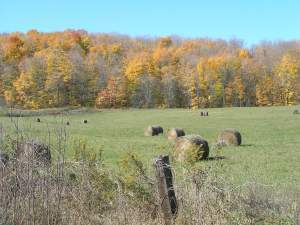 and Canadian thanksgiving behind an emphasis on gratefulness is especially appropriate. But as soon as we mention national entities, patriotism sometimes triumphs over thankfulness. Humility reminds us to look beyond national stereotypes. As Paul points out to the Corinthian church, boasting is not only a form of ingratitude for God’s gifts but a form of stealing the credit from God for the good things we have and are. For “what do you have that you did not receive”(1 Cor 4:7)?
and Canadian thanksgiving behind an emphasis on gratefulness is especially appropriate. But as soon as we mention national entities, patriotism sometimes triumphs over thankfulness. Humility reminds us to look beyond national stereotypes. As Paul points out to the Corinthian church, boasting is not only a form of ingratitude for God’s gifts but a form of stealing the credit from God for the good things we have and are. For “what do you have that you did not receive”(1 Cor 4:7)?
Am I a Canadian? Yes. But I have nothing to boast about. Is my wife, Mary Helen an American? Yes. She has nothing to boast about. Why? By God’s providence, we live in this geographic corner of the world. By God’s providence we are the benefactors of the efforts and interaction of a myriad of people, ideas and happenings over many years. This includes ideals of freedom and morality inspired by the Bible. In many ways, we are of all people most blessed. So, let me ponder some of the overlooked things we have for which to be grateful.
Our government. In spite of occasional scandals or inefficiencies, by and large, our governme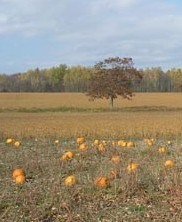 nt officials seek our welfare. Our armed forces protect us from external enemies who would destroy our democratic way of life. Our governments give generously to programs in other countries. Mary Helen and I both receive pension and old age security benefits, without which we could not pay our bills. Besides we receive various rebates. We are very grateful.
nt officials seek our welfare. Our armed forces protect us from external enemies who would destroy our democratic way of life. Our governments give generously to programs in other countries. Mary Helen and I both receive pension and old age security benefits, without which we could not pay our bills. Besides we receive various rebates. We are very grateful.
Our municipal and provincial governments. We drive on good roads with just a few potholes. We enjoy parks. Our grandchildren go to good schools. Our home is protected by firemen and police. We love our local library. Electricity makes our lives convenient. We are grateful.
Our health care system. Debatable? Rarely to us. We gratefully make appointments with doctors, labs, and go to the local hospital. It is all free. We pay $6.11 per prescription after a reasonable yearly deductible for necessary medicine. A bargain indeed!
Local and national businesses. We are grateful for technicians who fix our furnace, repair our telephone connections, and our car. We’re thankful for relatively reasonable Internet connection, and for banks, grocery stores, coffee shops, bookstores, and many more busin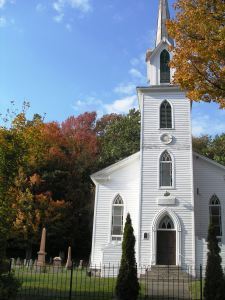 esses.
esses.
Our farmers. We are grateful for the hard work and productivity of our farmers and for local markets where we can buy fresh produce.
We could, and should, make many additions to this list: the volunteers who raise money for charities and medical research plus the churches where we can worship freely without fear of harassment. Truly in this corner of the world we are blessed. Thank you Father!


October 4, 2013
Mankind: Evolved Animal or Created Custodian?
I love to watch the antics of our local wildlife. The chipmunks are e xpert tunnelers. I’m never quite sure where they will pop up next. On the other hand, their cousins, the squirrels, weave sturdy nests high in some of our trees. I’ve never know them to be blown down in a storm. The wrens and hummingbirds exhibit amazing skill in crafting and hiding their nests. And who can thwart a raccoon that wants to get into a compost bin?
xpert tunnelers. I’m never quite sure where they will pop up next. On the other hand, their cousins, the squirrels, weave sturdy nests high in some of our trees. I’ve never know them to be blown down in a storm. The wrens and hummingbirds exhibit amazing skill in crafting and hiding their nests. And who can thwart a raccoon that wants to get into a compost bin?
There is, however, a qualitative difference between their skills and that of humans. A couple of days ago a dental surgeon extracted a troubling molar. He was skilled and personable! I’m quite amazed at the continual development in the field of dentistry—so much improved over the clunky drill s scared me as a child.
s scared me as a child.
The whole range of human achievement is astounding: in medicine, in engineering, in computer science, and in avionics, to name a few. While all creatures show skills suitable to their environment, humans continually invent, create, and imagine, as well as modify their environment. Non-human creatures have little or no ability to innovate or create. Arguably, th eir ability to create music, literature, or art is non-existant.
eir ability to create music, literature, or art is non-existant.
Why is this, if we are but evolved animals? Where did consciousness come from? How did we learn to communicate, invent, dream? From God, of course.
When I consider your heavens, the work of your fingers,
the moon and the stars, which you have set in place,
What is man that you are mindful of him,
the son of man that you care for him?
You made him a little lower than the heavenly beings
and crowned him with glory and honor.
You made him ruler over the works of your hands;
you put everything under his feet….
O Lord, our Lord, how majestic is your name in all the earth! (Psalm 8:3-9)
God made us just a little lower than the angels and gave us the responsibility to be His stewards on earth. He gave us glory and honor and as custodians, He expects us to use our faculties to do good both to one another and to the earth.
our faculties to do good both to one another and to the earth.
Inspired by this creativity, much good has been done in medicine, in dentistry, in agriculture, indeed in every field of human endeavor. But sadly, much evil has also been invented and perpetrated on others and much destruction has been visited on the good earth God gave us. When we do good, we live up to our mandate and bring God honor. When we do evil, we do much more damage than raccoons or sharks.
Let’s use our creativity to do onto others (including the environment) as we would have them do onto us.


September 25, 2013
Having Vibrant Souls
Our vegetable garden is starting to look pitiful. The beets have stopped growing  as have the carrots. The tomato plants are shriveling, the beans slowing their production, and even our prolific cucumbers are disappointing. In the flower garden, the perennials are fading.
as have the carrots. The tomato plants are shriveling, the beans slowing their production, and even our prolific cucumbers are disappointing. In the flower garden, the perennials are fading.
Since everything has a season, all this is very natural. But what about me? I look down at my hand—and see liver spots! Ugly. My hair is thinning and greying. My sleep is often interrupted. My walking is curtailed. Should I take up a lament?
The Apostle Paul suggests; “We do not lose heart. Though outwardly we are wasting away, yet inwardly we are being renewed day by day…so we fix our eyes not on what is seen, but on what is unseen. For what is seen is temporary, but what is unseen is eternal” (2 Cor. 4:16,18).
This ‘outward wastin g’ is part of the human condition. Paul suggests that we not let this aging process discourage. Instead he urges us to focus on our inward selves, the unseen and eternal part of us which can be renewed day by day.
g’ is part of the human condition. Paul suggests that we not let this aging process discourage. Instead he urges us to focus on our inward selves, the unseen and eternal part of us which can be renewed day by day.
The Bible calls that inward, invisible part of us our soul or spirit. “Love the Lord your God with all your heart and with all your soul and with all your mind”(Matt. 22:37). (Although some Christians believe that we are composed of three parts; body, soul, and spirit; my study of the Scriptures has led me to believe that soul, spirit, and heart are often used interchangeably. And thus, in my view we have two parts: one temporal—the body, and one eternal—the soul/spirit/heart.)
Our emotions, intellect, and will reside in our souls. So even though our bodies may deteriorate, our souls can thrive. While marketing gurus focus on beautifying our bodies and hiding our aging, we can please God by looking to Him to beautify our souls. How? Through attention to the Scriptures and a life of prayer.
Throughout its pages, the Bible urges all disciples to cultivate soul-health. “Blessed are the poor in spirit [humble],… those who mourn [are honest about themselves],… the meek,… those who hunger and thirst for righteousness,… the merciful,… the pure in heart,…the peacemakers”(Matt. 5:3-9). We can ask the Holy Spirit to produce in us “love, joy, peace, patience, kindness, goodness, faithfulness, gentleness and self-control”(Gal. 5:22,23).
As we approach that time of life when our bodies fail, we can give more attention to the state of our soul. And isn’t that what the world needs anyway, more beautiful souls? People like Joni Earkson-Tada who has blessed so many disabled and others. People like Amy Carmichael who from a bed of illness rescued Indian temple prostitutes. People like Joy Ridderhof, also laid aside by illness, who conceived of recording the Gospel in all the world’s languages.
to the state of our soul. And isn’t that what the world needs anyway, more beautiful souls? People like Joni Earkson-Tada who has blessed so many disabled and others. People like Amy Carmichael who from a bed of illness rescued Indian temple prostitutes. People like Joy Ridderhof, also laid aside by illness, who conceived of recording the Gospel in all the world’s languages.
And so Lord, as my life becomes somewhat physically circumscribed, help me to give more and more attention to cultivating love in all its facets. Prepare my soul for eternity by using me until then to bless others.


September 11, 2013
Savoring Beauty
 The flower vases sit empty; the faded and shriveled remnants of last week’s bouquets have been cast aside. “Can you cut some fresh flowers?” Mary Helen asks as I head outside for my morning check of the garden. We love to have vases of flowers beautifying every room.
The flower vases sit empty; the faded and shriveled remnants of last week’s bouquets have been cast aside. “Can you cut some fresh flowers?” Mary Helen asks as I head outside for my morning check of the garden. We love to have vases of flowers beautifying every room.
Wherever we live I have to plant flowers. Even when we lived in a walled-in house in a dusty Pakistani town, I pulled up some of the courtyard bricks to plant flowers.
I believe God created us with an innate longing for beauty. It may be buried beneath stronger desires: security and self-assurance, love and community, power and wealth, food and drink. But somewhere it lies waiting to be recognized. I remember reading about a young child walking with its mother down a dirty alley in one of our cities. Suddenly the child stopped and pointed at a flowering  weed growing in a crack of the potholed pavement. “Pretty,” she said.
weed growing in a crack of the potholed pavement. “Pretty,” she said.
As we gaze around our world and beyond, if we have eyes to see, beauty leaves us with our mouth hanging open. Fields full of daisies. A sky full of stars. Butterflies and goldfinch. The stark beauty of the desert or the arctic tundra. Snowflakes gently falling. The microscope diving us into the stunning beauty and diversity of sand granules, the symphony of life we find written in our DNA, the complexity of a cell, the harmony in a molecule. Or probing galaxies through telescopes. Wherever we go we discover in form and function astounding beauty often partnered with utility.
 Of course, this is not surprising. With David who longed to spend his days gazing “upon the beauty of the Lord” (Psalm 27:4) we would expect the glorious Creator to leave his fingerprints everywhere. “He has made everything beautiful in its time”(Eccl. 3:11). The Jewish Tabernacle and later the Temple were made beautiful, constructed as they were according to God’s blueprint. Everything God touches becomes beautiful: salvation itself (Psalm 149:4), the holiness He inculcates in His children (Psalm 29:2; 99:9; 2 Chron. 20:21), the feet of those who proclaim the good news (Isaiah 52:7).
Of course, this is not surprising. With David who longed to spend his days gazing “upon the beauty of the Lord” (Psalm 27:4) we would expect the glorious Creator to leave his fingerprints everywhere. “He has made everything beautiful in its time”(Eccl. 3:11). The Jewish Tabernacle and later the Temple were made beautiful, constructed as they were according to God’s blueprint. Everything God touches becomes beautiful: salvation itself (Psalm 149:4), the holiness He inculcates in His children (Psalm 29:2; 99:9; 2 Chron. 20:21), the feet of those who proclaim the good news (Isaiah 52:7).
Can you imagine the beauty that awaits believers in Christ beyond the veil of death? Even the book of Revelation, limited as it is by human language, fails to  describe fully the heavenly Jerusalem. Paul quotes Isaiah. “No eye has seen, no ear has heard, no mind has conceived what God has prepared for those who love him”(1 Cor. 2:9).
describe fully the heavenly Jerusalem. Paul quotes Isaiah. “No eye has seen, no ear has heard, no mind has conceived what God has prepared for those who love him”(1 Cor. 2:9).
In the meantime, we should be on the lookout for beauty because beautiful things reflect the glory of the Triune God who made them. Open my eyes, Lord, to really see?
O my God, if Thy creations are so full of beauty, delight and joy,
how infinitely more full of beauty, delight and joy
art Thou, Thyself, Creator of all!
(Quoted by Ann Voskamp, p. 102, One Thousand Gifts, from Nicodemos of the Holy Mountain)


September 2, 2013
The Restless Sea Mirrors Our Restless Hearts
 The ocean is never still. Its tides rise and fall, its breakers crest and dissipate, and its waves roll on and on until they crash against a rocky shore or roll up on a sandy beach. Its waters collect and propel unto the world’s beaches all the flotsam and jetsam of the ocean world: broken shells, shattered boats, bottles, splintered trees and cast-off Styrofoam. The more agitated the ocean becomes, the more it stirs up the whole mix of broken shells and mud that in calmer times settles to the ocean floor. After storms shorelines are littered with mud and debris.
The ocean is never still. Its tides rise and fall, its breakers crest and dissipate, and its waves roll on and on until they crash against a rocky shore or roll up on a sandy beach. Its waters collect and propel unto the world’s beaches all the flotsam and jetsam of the ocean world: broken shells, shattered boats, bottles, splintered trees and cast-off Styrofoam. The more agitated the ocean becomes, the more it stirs up the whole mix of broken shells and mud that in calmer times settles to the ocean floor. After storms shorelines are littered with mud and debris.
How appropriate that the prophet used this image to describe the condition of men and women who jettison moral standards in their struggle to find their personal nirvana. “‘The wicked are like the tossing sea, which cannot rest, whose waves cast up mire and mud. There is no peace,’ says my God. ‘for the wicked’”(Isaiah 57:20,21).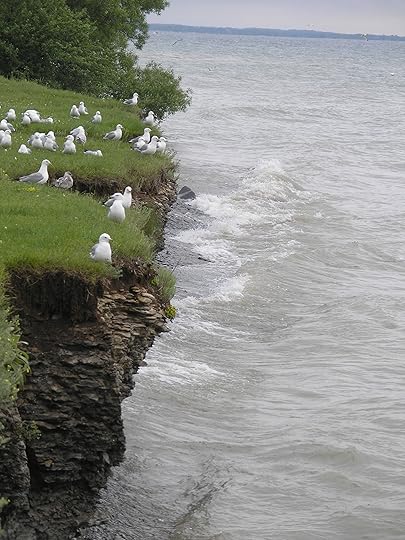
We cannot expect a tranquil mind if our lives are a graveyard of broken promises, shattered morals, and shady practices. Instead, nefarious schemes will occupy our minds. Thoughts of past dealings with others will provoke bitterness, anger and thoughts of revenge. Unless we have denied the voice of our consciences long enough to dull their injured cries, we will be fretful, restless, and unhappy.
God has given everyone a conscience imprinted with a set of moral principles. But the more we listen to the siren song of our culture’s ‘new morality,’ the more our innate sense of right and wrong will be blunted and distorted. The result? Restlessness. Inability to find peace of heart. Broken relationships.
Paul writes, “My conscience is clear” (1 Cor. 4:4). Can you and I say that? If not, the only remedy is to bow to Jesus Christ, confessing our moral failures, and asking him to forgive us our sins and bring peace of heart. Jesus promised, “Peace I leave with you; my peace I give you. I do not give to you as the world  gives. Do not let your hearts be troubled and do not be afraid”(John 14:27).
gives. Do not let your hearts be troubled and do not be afraid”(John 14:27).
When we confess our moral failures to Jesus Christ, He will forgive us and soothe our hearts. Then the Storm-calmer will reside in our hearts to calm the storms that sweep through our lives.


August 26, 2013
Contentment Vs Grass-Is-Greener Syndrome
 While walking one day, Mary Helen spied a very unusual sight; a tiny flowering plant growing in the top of an old post. The aged post was one of a number holding up a guardrail near a bay off Lake Ontario. In more affluent times, road crews would have replaced it. We’re fortunate they didn’t. The tiny flower reminded us to prosper where we’re planted.
While walking one day, Mary Helen spied a very unusual sight; a tiny flowering plant growing in the top of an old post. The aged post was one of a number holding up a guardrail near a bay off Lake Ontario. In more affluent times, road crews would have replaced it. We’re fortunate they didn’t. The tiny flower reminded us to prosper where we’re planted.
From Eden when Adam and Eve scorned the hundreds of fruit trees they could enjoy to lust after the one forbidden tree, we have all been afflicted with a grass-is-greener syndrome. If only we had a house by the sea. If only we had more money. If only we had better health. If only we had more interesting jobs. If only our church was more spiritual. If only we could win the lottery. If only our children were more thoughtful. If only we had a retirement plan like Joe’s.
We tend to be discontented people. We look around and imagine things different—better somehow. But God says, grow in grace where you are, in whatever circumstance you find yourself. Show love. Experience joy. Minister kindness. Give thanks. Learn patience.
As Joy Voskamp writes, “As long as thanks is possible, then joy is always possible, Joy is always possible. Whenever, meaning—now; wherever, meaning —here. The holy grail of joy is not in some exotic location or some emotional mountain peak experience. The joy wonder could be here! Here, in the messy, piercing ache of now.” (One Thousand Gifts, p. 33)
No, joy is not found in some exotic location. Or even in a more convenient house. We’ve had our present property up for sale in hopes of moving to a smaller place in town where we can live without stairs or outside maintenance. But interest has been abysmal. The weeks drag by without showings.
Oh, it’s not wrong to change our circumstances; to try and tailor our housing to  our health. Within each of us is a latent desire to improve our surroundings, to beautify, to invent, to create. This is part of being image-bearers, created in the image of God, the Great Creator. Being content is not about being satisfied with the mediocre. It’s more about living joyfully today instead of being miserable because tomorrow hasn’t come. It’s about being patient with current circumstances.
our health. Within each of us is a latent desire to improve our surroundings, to beautify, to invent, to create. This is part of being image-bearers, created in the image of God, the Great Creator. Being content is not about being satisfied with the mediocre. It’s more about living joyfully today instead of being miserable because tomorrow hasn’t come. It’s about being patient with current circumstances.
So, Lord please help me to curb my discontent. Help me to become a blessing to You and others here, where you have planted me, now in this day you have given.


August 19, 2013
Aging and Losing Control
The summer sun beckons me outdoors for a hike. But my knees won’t cooperate. Grr! Dead branches on our cedars need trimming. But I’m warned not to climb ladders. But I don’t feel old inside! And yet reality has begun to seriously limit both Mary Helen’s and my activities. It’s frustrating. As I think about it, I realize that it’s all about losing control.
Ever since Satan whispered to Adam and Eve that they would be like God, autonomous and knowing all things, we have all faced control issues. We innately want to be in control of our daily life, our destiny, and especially our bodies. Our body is our own, after all. One of the main things many people hate about the biblical revelation of our infinite, self-sufficient, sovereign God; He doesn’t need us but we need Him and He rules the universe.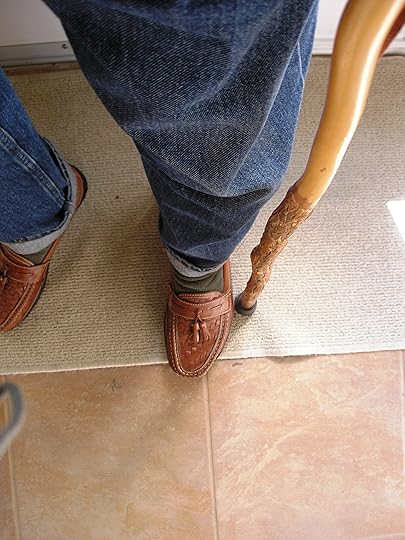
Through much of life, the vibrancy of a person’s health may enable him to ignore God. But aging brings us face to face with actuality. We are not sovereign, only God is. Instead of being in control of our running and jumping and sleeping—all of our activities—our aging bodies limit us. And it aggravates us.
Observation should have told us, even when we were young, that life is beyond our control. We can’t change the weather. We can’t avoid accidents. Six weeks ago Mary Helen suffered a concussion due to a freak happening. We can’t predict the stock market. We don’t know what our health will be like tomorrow. We can’t change our DNA.
Now it is true that modern societies have been able to engineer relatively safe and healthy environments. And yet there remains an enormous unpredictability to life. Mature people realize this and plan for the unexpected. Most, however, still rail against circumstances and buy lottery tickets in the vain hope that their ship will come in.
I think I understand. In spite of being a Christian for over 60 years, it seems like I haven’t yet learned, like the Apostle Paul, to be content in all circumstances. What circumstances he endured! Five times he received 39 lashes. He was stoned, beaten 3 times with rods, shipwrecked three times. He endured imprisonments, riots, sleepless nights and hunger. He wrote from prison, “I have learned to be content whatever the circumstances. I know what it is to be in need, and I know what it is to have plenty. I have learned the secret of being content in any and every situation, whether well fed or hungry, whether living in plenty or in want”(Phil. 4:11-12). What was the secret? A verse I’ve claimed throughout the years, “I can do everything through him who gives me strength”(Phil. 4:13).
Surely if Paul, under such dire and changing circumstances, could feel content, we ought to accept our lot with equanimity—especially the inevitability of aging. The secret, of course, is looking to our divine Shepherd, remembering that He said, “And surely I am with you always” (Matt. 28:20).
And so, whether young or older, let’s pray, Lord help me to accept what I cannot change without grumbling and griping and self-pity.


August 7, 2013
Bear Sightings
Country means the presence of critters: deer, turkeys, rabbits, and raccoons. But bears? Every year our local papers have an article or two about bears being sighted in our heavily populated but relatively rural county.
The Peterborough office of the Ministry of Natural Resources says that we have black bears, not only in the wilderness areas of the north but right down to the shore of Lake Ontario. A shoreline with a string of cities and towns from Hamilton through Toronto to Cobourg, Belleville and Kingston? Ontario evidently has over 75,000 black bears who can weigh from 100 to 600 pounds.
 We are urged to put garbage in bear-proof containers, take in all bird feeders, and make sure our barbecue is clean. If we face a bear we should not run away but make lots of noise, raise our arms to look big, and slowly back away. Bears are probably as afraid of us as we are of them. Never run or climb a tree.
We are urged to put garbage in bear-proof containers, take in all bird feeders, and make sure our barbecue is clean. If we face a bear we should not run away but make lots of noise, raise our arms to look big, and slowly back away. Bears are probably as afraid of us as we are of them. Never run or climb a tree.
Scary? Something to fear? In Canada, I believe there is only one death yearly by bear—and that by a grizzly. We have 9.2 vehicle fatalities per 100,000 population. We have 57 lightning deaths a year, 590 drownings, and 1200 fatalities from workplace accidents.
Fear of bears should be very far down on our list of phobias. Society sweeps a host of other dangers under the carpet which we should really fear. To use Dr. Craig Carter’s term, our culture has become a culture of death. We’ve seen the death of absolute moral standards. Relativism has murdered respect for absolute truth. Marriage is on life support. Hyper-feminism has sought to redefine life to allow for the death by abortion of about 100,000 unborn children per year in Canada. Agitation for euthanasia is picking up steam.
A culture of death! We need not fear bears. We need rather to fear that which destroys our ability to cherish life and fear God. The fear of God breeds reverence for life and clarity of vision—the sense of awe at God’s beauty that moves us to live clean, constructive, peaceful, gentle lives. How desperately we need to spread the message of Jesus, the only antidote for our culture of death. “I am come that they might have life and that they might have it more abundantly”(John 10:10).





